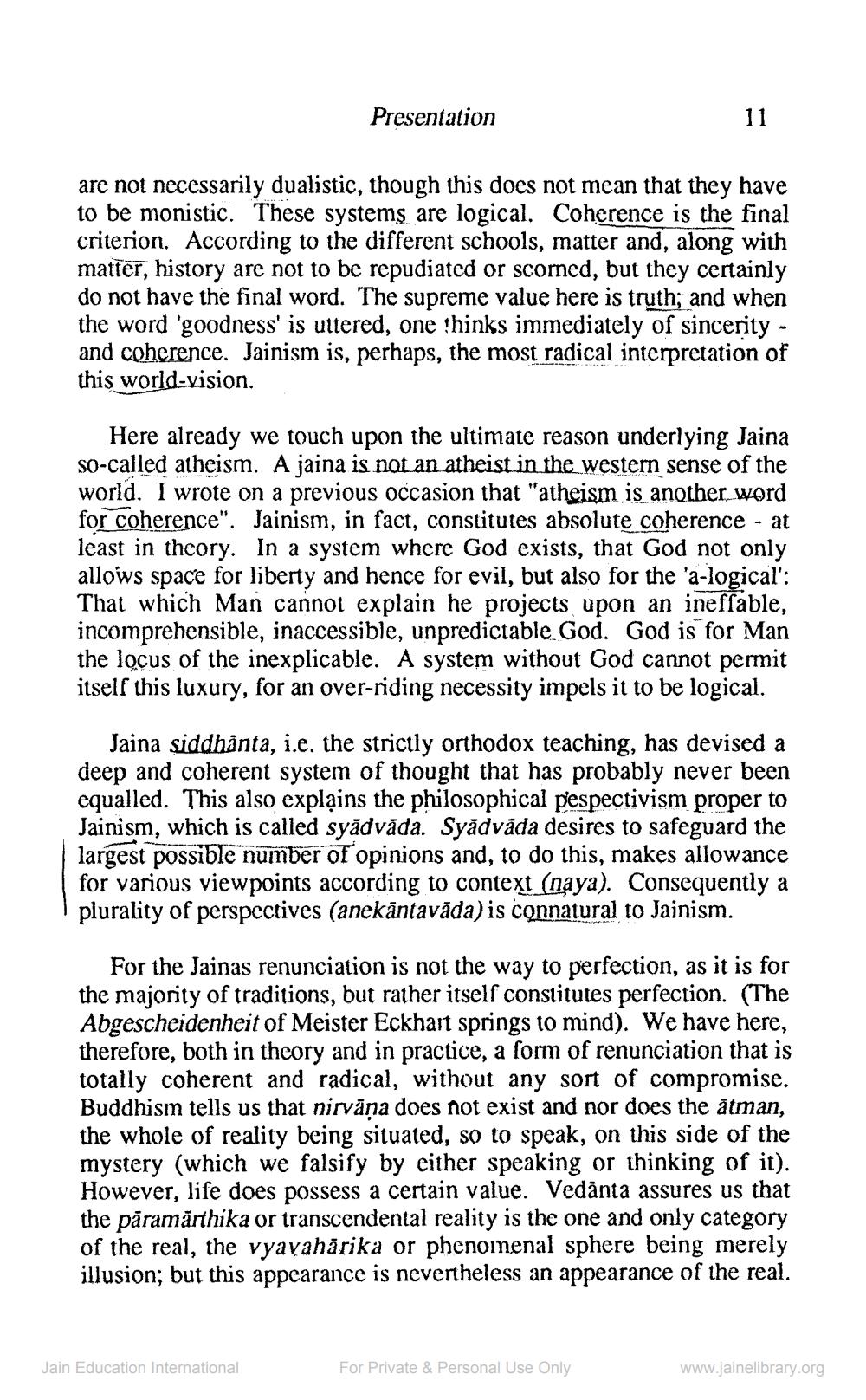________________
Presentation
11
are not necessarily dualistic, though this does not mean that they have to be monistic. These systems are logical. Coherence is the final
nion. According to the different schools, matter and, along with matter, history are not to be repudiated or scorned, but they certainly do not have the final word. The supreme value here is truth: and when the word 'goodness' is uttered, one thinks immediately of sincerity - and coherence. Jainism is, perhaps, the most radical interpretation of this world-vision.
Here already we touch upon the ultimate reason underlying Jaina so-called atheism. A jaina is not an atheist in the western sense of the world. I wrote on a previous occasion that "atheism is another word for coherence". Jainism, in fact, constitutes absolute coherence - at least in theory. In a system where God exists, that God not only allows space for liberty and hence for evil, but also for the 'a-logical': That which Man cannot explain he projects upon an ineffable, incomprehensible, inaccessible, unpredictable God. God is for Man the locus of the inexplicable. A system without God cannot permit itself this luxury, for an over-riding necessity impels it to be logical.
Jaina siddhanta, i.e. the strictly orthodox teaching, has devised a deep and coherent system of thought that has probably never been equalled. This also explains the philosophical pespectivism proper to Jainism, which is called syādvăda. Syādvāda desires to safeguard the largest possible number of opinions and, to do this, makes allowance for various viewpoints according to context (naya). Consequently a plurality of perspectives (anekāntavāda) is connatural to Jainism.
For the Jainas renunciation is not the way to perfection, as it is for the majority of traditions, but rather itself constitutes perfection. (The Abgescheidenheit of Meister Eckhart springs to mind). We have here, therefore, both in theory and in practice, a form of renunciation that is totally coherent and radical, without any sort of compromise. Buddhism tells us that nirvāṇa does not exist and nor does the ātman, the whole of reality being situated, so to speak, on this side of the mystery (which we falsify by either speaking or thinking of it). However, life does possess a certain value. Vedānta assures us that the pāramărthika or transcendental reality is the one and only category of the real, the vyavahārika or phenomenal sphere being merely illusion; but this appearance is nevertheless an appearance of the real.
Jain Education International
For Private & Personal Use Only
www.jainelibrary.org




